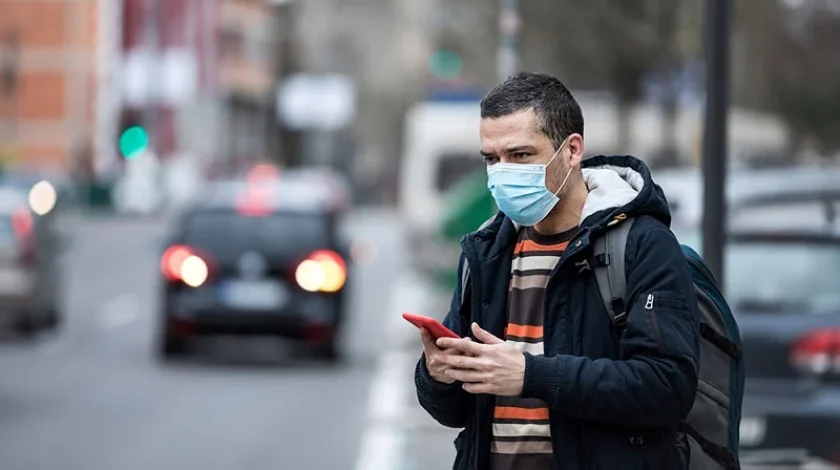Employers have faced many new challenges associated with management of COVID-19 in the working environment. One of these was most recently highlighted by the Personal Injury Commission, which recognised for the first time that compensation would be payable for the death of a worker due to contraction of COVID-19 during the course of his employment.
As domestic and international borders begin to slowly and cautiously open, employment related travel will no doubt increase, and employers must be mindful of the issues that can arise if their employees contract COVID-19 during their travels.
In this blog, we unpack some of the issues that can arise when employees travel during times when COVID-19 is still a concern – times which are likely to remain with us for some time yet.
The Case
In the case of Sara v G & S Sara Pty Ltd [2021] NSWPIC 286, the applicant made a claim for compensation following the death of her husband from COVID-19 which he contracted on a work trip to New York. The husband was a director of the respondent company, and flew to New York via San Francisco on 15 July 2020.
Between 15 and 18 July 2020, the worker contracted COVID-19. He died on 21 November 2020 from the acute respiratory distress he suffered from as a result of contracting COVID-19.
Two key questions were considered by the Commission, including:
- whether the worker had been engaged in employment at the time that he contracted COVID-19; and
- whether the COVID-19-related death amounted to a personal injury within the meaning of section 4(a) of the Workers Compensation Act 1987 (NSW) (the Act).
In respect of the first question, it was found that the worker had contracted the disease during travel from Sydney Airport to his hotel in New York. Importantly, this was a period of travel that was work induced and encouraged by the respondent to the respondent’s benefit.
Section 19B of the Act, which came into effect on 14 May 2020 under a COVID-19 Legislation Amendment (see here), provides for a presumption that if a worker undertaking prescribed employment contracts COVID-19 during that employment, then it is automatically presumed that the employment was a substantial or the main contributing factor to the worker contracting COVID-19. The worker must have had the virus confirmed via prescribed medical testing, and it is presumed thereafter that the worker will be incapable of work for a prescribed period.
Applying these presumptions, the Commission therefore held that:
- the disease was contracted by the worker in the course of his employment; and
- the employment was the main contributing factor to the disease.
In respect of the second question, the Commission noted that the COVID-19 virus had caused the worker profound respiratory failure, which amounted to an identifiable pathological change and therefore ‘personal injury’ within the meaning of section 4(a) of the Act.
Additionally, the Commission was satisfied that the applicant was a dependant of the deceased in accordance with section 25 of the Act, and therefore held an entitlement to death benefits. The respondent was ordered to pay the applicant a lump sum death benefit of $834,200.
To read the full case, see here.
Related Considerations
As Employment Lawyers, we deal every day with the question of risk to employers in the management of their workers. Presently, many of the questions we face are focussed upon employer obligations with respect to management of workers in light of the risk of COVID-19.
One of these risks pertains to workers who are required to travel for work. In the current environment of closed borders, employees that are Australian citizens or permanent residents are required to obtain exemptions from the Department of Home Affairs prior to international travel. One of the grounds for obtaining an exemption to fly out of Australia as an Australian citizen or permanent resident is if the travel is for your business or employer.
However, in addition to considering the documents required to apply for a travel exemption, employees should consider the following potential issues:
- have you taken reasonable steps to ensure the safety of your travelling employee?
- have you made travel arrangements to ensure your employee can get to their destination quickly and safely, including transport to and from the airport, and accommodation?
- is your employee vaccinated from COVID-19?
- what is the COVID-19 situation in the destination country?
- does the company’s current travel or workers compensation insurance cover travel related work injuries and deaths?
- is travelling during a pandemic an exclusion under the relevant insurance policy?
- is the employee aware of who they need to contact should they require medical attention during their trip?
- Is your employee prepared to undergo any mandatory quarantine required prior to and after travel?
Employers must turn their minds to and assess the extent of the risk they are exposing their employees to, and ensure they have taken measures to minimise the potential of that risk occurring. However, ultimately as exposed by the case of Sara v G & S Sara Pty Ltd employers must be prepared to accept workers compensation claims arising from employees who die or suffer serious injury as a result of COVID-19.
Take Aways
- Where a worker is performing work for their employer or at work as directed by their employer, the employer has duties and obligations as to the health and safety of that worker.
- Under current border closures, travelling employees who are Australian citizens or permanent residents require travel exemptions from the Department of Home Affairs in order to leave Australia. Those who are on temporary Australian visas may have issues re-entering Australia.
- Under s19B of the Workers Compensation Act 1987 (NSW), if an employee contracts COVID-19 during the course of their employment, the employment will automatically be presumed to be a substantial or the main contributing factor to contracting the disease and this will play a role in any subsequent workers compensation claim.
If you have any questions about how to manage your employees during the COVID-19 pandemic, or relating to applying for a travel exemption for an employee, please do not hesitate to contact a member of Coleman Greig’s Employment Law Team, who would be more than happy to assist you today.














